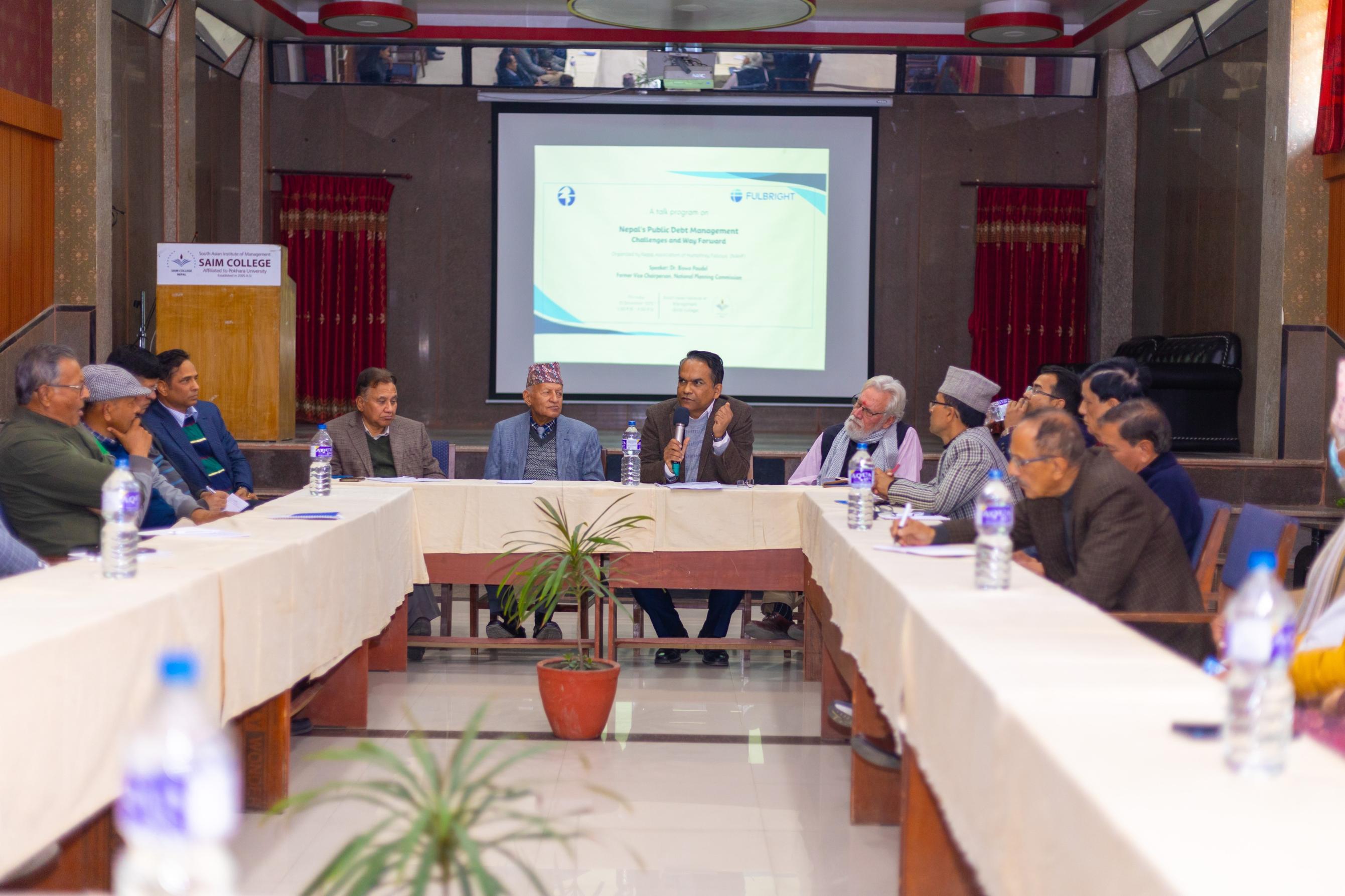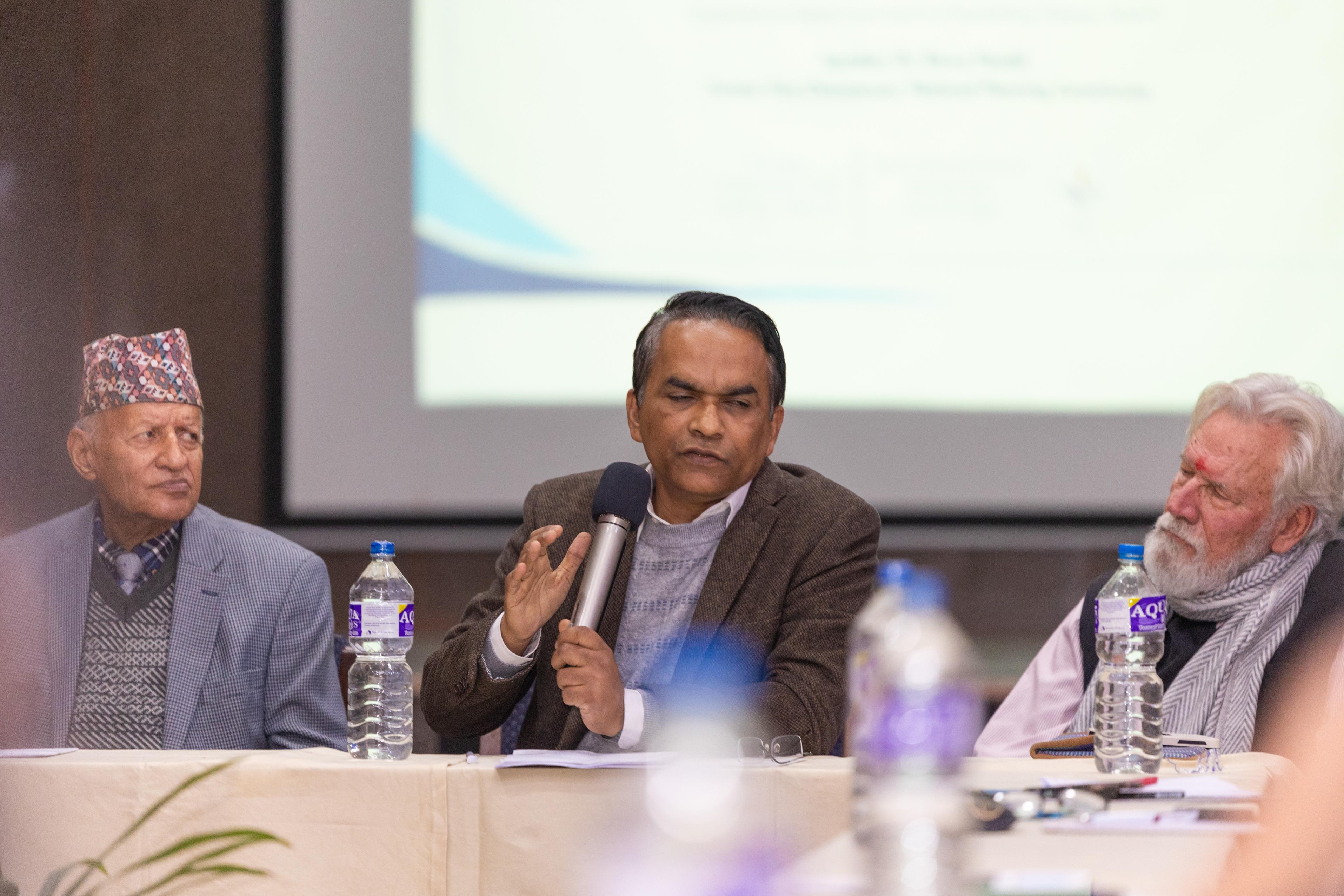


Delving into Nepal's Economic Future: A Strategic Discourse on Public Debt Management
2023-12-21
Captivating Session Led by Dr. Biswo Poudel Sparks Insightful Conversations
In a thought-provoking session on 'Nepal's Public Debt Management: Challenges and Way Forward,' Dr. Biswo Poudel, former Vice Chair of the National Planning Commission, took center stage at an event jointly organized by SAIM College, Nepal Association of Humphrey Fellows (2022-2024), and Fulbright. The event brought together a distinguished audience, including the Director of Public Debt Management, representatives from the Ministry of Finance, current and former Directors of the Humphrey Alumni Association, and forme Read more
Related Events / News
Delving into Nepal's Economic Future: A Strategic Discourse on Public Debt Management
Captivating Session Led by Dr. Biswo Poudel Sparks Insightful Conversations
In a thought-provoking session on 'Nepal's Public Debt Management: Challenges and Way Forward,' Dr. Biswo Poudel, former Vice Chair of the National Planning Commission, took center stage at an event jointly organized by SAIM College, Nepal Association of Humphrey Fellows (2022-2024), and Fulbright. The event brought together a distinguished audience, including the Director of Public Debt Management, representatives from the Ministry of Finance, current and former Directors of the Humphrey Alumni Association, and former USEF-Nepal Executive Director Mr. Michael Gill.
Dr. Poudel commenced the session with a comprehensive overview of the history of Public Debt Management in Nepal, providing a recollection of historical facts from the 18th century to the present. A significant concern was voiced about the substantial increase in public debt from 2017 to 2023, prompting participants to emphasize the need for accountability among stakeholders in managing public debt effectively.
During the discourse, participants raised crucial questions about government spending and expenditure prioritization in various sectors. Mr. Michael Gill expressed concerns about migration in terms of employment and education, highlighting its potential impact on innovation, economic activities, and revenue generation – all factors contributing to the national debt.
The Director of Public Debt Management delivered closing remarks, assuring the audience that the government is committed to devising a coherent system and fostering better coordination among various departments. The aim is to strengthen public debt management in Nepal and redirect its benefits to the nation's prosperity.
The session drew a diverse audience, including scholars, students, industry leaders, and government stakeholders. It was a valuable platform for exchanging ideas, insights, and concerns about Nepal's economic future. The engagement underscored the significance of collaborative efforts in shaping effective public debt management strategies for the nation's sustainable development.
